Meta will continue to dominate VR sales despite increased competition in 2023
Meta's investments in VR have proven to be wildly successful.
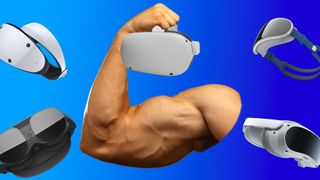
Ever since the original Oculus Quest launched, Meta has largely been alone in the standalone VR headset market. Sure, rivals like Pico and HTC have been making standalone headsets for nearly as long as Meta, but the company's voracious desire to be the leader in the space has proven to be a successful strategy.
As a result, the Oculus Quest 2 is the most successful VR headset ever by a large margin. While we don't have full sales data points for how many headsets Meta sold in 2022 yet, it looks like the company may have pushed over the 20 million sold line; a triumph for the VR market as a whole and a representation of what's to come.
With that in mind, Meta is facing more competition in 2023 than it ever has before. HTC is launching its first serious Quest competitor in the U.S. next month and, right alongside it, Sony's PS VR2 is going to attempt to pigeonhole the premium VR segment. The possibility of a U.S. Pico 4 release is still anyone's best guess but, even without that, Meta could still see Apple jump in the game later this year before the Meta Quest 3 debuts.
Will they still win? With the utmost certainty, yes.
2022 was still a super successful year
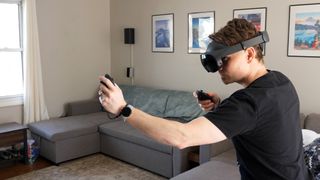
While we're still waiting for Meta's annual financial report for FY2022, other analyst firms have already begun to add up the numbers and generate reports on how many Quest headsets Meta sold throughout the year. The result? According to NPD group, VR headsets were down 2.2% year-over-year compared to 2021.
Some outlets like CNBC immediately jumped on this news to claim the death of the Metaverse. This is a common tactic by prominent news outlets that generally have no idea what they're talking about regarding VR.
CNBC's journalism on this particular subject was embarrassingly bad, only made worse by the number of outlets that repeatedly scooped up the story and parroted the same mantra. The problem is that the facts show a very different story.
Be an expert in 5 minutes
Get the latest news from Android Central, your trusted companion in the world of Android
In a year when thousands of people lost their jobs, the best-selling VR headset was $100 more expensive than the previous year.
Halfway through the year, Meta dropped the Facebook account requirement and increased the price of the Quest 2 by $100. As a rule of thumb, this isn't something that ever happens in consumer electronics. The price of products goes down over time, not up.
Despite this, Meta made only 2.2% less in 2022 than it did in 2021. It doesn't take a genius to understand that this is a win for the industry, not a net loss. That's all in a year when thousands of people lost their jobs, yet, the best-selling VR headset was $100 more expensive than the previous year.
The momentum is clear. People want to play VR games and they're largely choosing Meta over everyone else.
Not all competition is the same
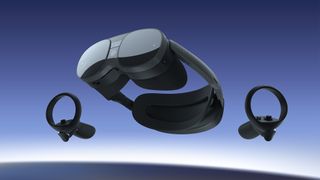
Meta's unique position is one that will continue over the next year for several reasons. First off, is the price. The only company that can compete at the same price is Pico, a company owned by ByteDance of TikTok fame.
Michael Hicks and I interviewed Leland Hedges, General Manager, EMEA at Pico back in December. While the interview was full of fascinating tidbits, one particular fact stood out to me: Pico's biggest market right now is Germany, a country that banned the sale of Oculus headsets years ago because of its ties to Facebook.
The Pico 4 is the only major standalone VR headset that's actually affordable. HTC's Vive Focus 3 is an incredible product but costs €1,000 Euros more than the Pico 4, making the Pico 4 an obvious choice for consumers.
Pico's biggest market right now is Germany, a country that banned the sale of Oculus headsets years ago because of its ties to Facebook.
But Pico can't (and won't) tell us when it'll attempt a U.S. launch. No one at the company will say it out loud but to me, the reason is incredibly obvious. Pico is owned by ByteDance, the same Chinese company that owns TikTok and has faced increased scrutiny from American and European governments over the years.
After all, no one wants to be Huawei'd and see their investments depleted when products are banned from a country.
So what about HTC? The Vive XR Elite is an incredibly promising headset that looks to fix all the problems of the Meta Quest Pro while still coming in hundreds of dollars cheaper.
It's also getting an actual consumer U.S. release for the first time ever for a Vive standalone headset, something that could catapult the company to a level of success in the U.S. it hasn't seen since the original Vive.
The problem is the price. At $1,099 it's more than double the cost of the most expensive Quest 2, and almost certainly the same amount as the upcoming Quest 3 which is rumored to launch starting at $400 this October. HTC's attempt here is incredible and it looks like a breathtaking headset, but there's no denying that price will only become more important this year as companies are increasingly laying people off.

The Vive XR Elite looks to fix all the problems of the Quest Pro, but it's still twice as expensive as the Quest 2.
So how about Sony? The PS VR2 lands in exactly one month on February 22 and it's launching alongside 30 games, many of which carry high-profile names. Resident Evil, Horizon, Gran Turismo, Jurassic World, Star Wars, and The Walking Dead are all names every single gamer knows and loves.
By all accounts, Sony should have a huge showing on hand for the launch, and I absolutely think it will, but Sony's expectations are far lower than Meta's by a large margin. The company will have roughly 2 million PS VR2's ready for the February launch and expects it to sell at least twice as well as the original PSVR.
The problem is — at least for the market, as a whole — that only means 2 million (or so) headsets are expected to be sold through the entirety of 2023. At $550 (plus the $400+ cost to buy a PS5), it makes sense that sales expectations are lower than Quest 2 which retails for $400 and doesn't need anything else to run.
VR continues to grow
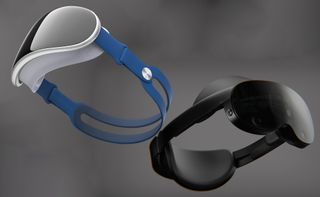
And that's just a list of the products we know are actually coming out this year, too. But there's even one little player I didn't even mention yet: Apple.
Apple enthusiasts continue to state that the headset "will release this year" year in and out, making much of the industry wonder if such a product actually exists at all. Many rumors and leaks have suggested that Apple isn't interested in directly competing at Meta's price point, once again proving that Meta will continue to lead the pack in VR headset sales no matter who joins the race.
VR isn't going away any time soon. There's zero data showing that "it's dying" or any other kind of nonsense like that.
There's also the possibility that Apple's headset won't even be in the same computing space as Meta, HTC, Sony, or Pico's, too. Recent rumors have suggested that Apple won't even ship the headset with a proper controller, meaning it's more of a media consumption device or has more to do with augmented/mixed reality than virtual reality gaming.
It would be like trying to say a smartphone competes with a laptop just because both have screens and some functionalities overlap. In short, I'm not holding my breath in hopes that Apple is actually trying to compete with Meta on the gaming front.
Here's the deal, though. No matter who comes on top in 2023, the VR industry as a whole continues to grow at exponential rates and everybody wins, especially developers. VR isn't going away anytime soon. There's zero data showing that "it's dying" or any other kind of nonsense like that.
And I couldn't be happier about it.
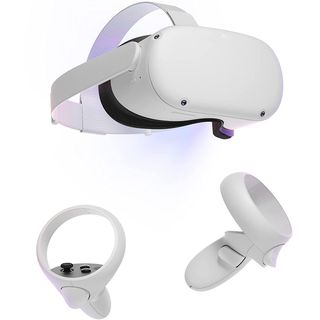
Forget waiting, get a Meta Quest 2 now and start gaming like you've never gamed before. VR is one of those things that you need to experience to believe and, once you put the headset on, you won't be taking it off anytime soon.

